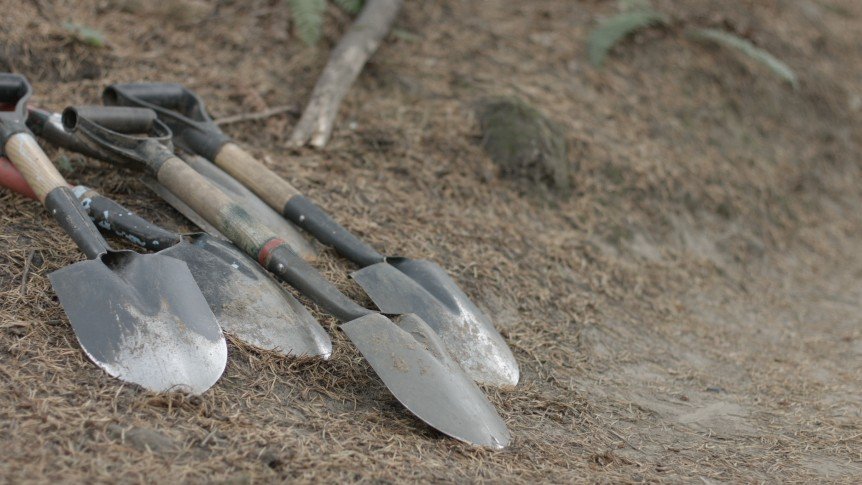APRIL IS DISASTER AWARENESS MONTH
As we head straight into spring, many of us are familiar with the severe changes in weather. While “April showers bring May flowers,” those showers can often lead to flash floods and extensive community damage. Many people in the Midwest also encounter tornadoes and dangerous lightning storms that can damage homes and lives. Then, as the temperatures rise, many areas will be exposed to droughts and the risk of wildfires in the West – something we’ve already seen in Kansas, Oklahoma, and Texas.
Whether you live on the East or West coast or somewhere in between, Mother Nature can hit hard during these seasonal shifts. While severe weather is often expected during the spring and coming summer seasons, it’s important to be aware of the risks in your area. It’s also important to raise disaster awareness. While you may not personally be affected when these storms or droughts hit, others in your community may not be so fortunate. How can you help when a crisis occurs?
INCREASING AWARENESS THIS APRIL
The awe-inspiring beauty of nature is rivaled only by its unpredictability. Even your local weather person can’t entirely predict what tomorrow will look like. This is why disaster awareness and preparedness are so important!
For many cities and counties around the U.S., April is Disaster Awareness Month. This means that every community should work together to:
- Understand local weather risks
- Learn which protocols to follow
- Know what to do in the event of a disaster at work, school, and home
You can even get involved with FEMA’s Citizen Corps to organize personal and community disaster planning. You can also apply to volunteer for your city’s own Office of Emergency Management by simply searching “[Your city] Office of Emergency Management.” From there, you can volunteer with local officials to improve policies, share information, and build community awareness in the event of a natural disaster.
If you want to spread awareness at your local school, your place of business, or through a church group, Ready.gov has an extensive list of preparedness worksheets, videos, and more. Sharing information is a huge part of disaster prep, so find the resources you can share in person, via social media, or with organizations. After all, a plan is no good unless everyone knows what it is!
You can also work directly with organizations who provide relief and aid after an event has occurred, but it’s important to be familiar with the programs and their efforts before severe weather hits.
VOLUNTEERING AFTER A DISASTER
One of the most important ways to lessen the impact of a natural disaster is to volunteer. You can help your neighbors, your city, or people halfway across the world, but you’ll need to know where and how you’d like to be involved. While volunteering in the wake of a wildfire, hurricane, or other event can make a huge difference, volunteering beforehand (or applying and training as a volunteer) can actually create systems that save lives.
Organizations like the Red Cross and the Corporation for National & Community Service are always recruiting disaster relief, with over 90% of their entire forcemade up of volunteers. Combined, organizations like these have impacted countless lives and volunteered in thousands of disasters. But the key is to apply before an event occurs. This way, you’re in the system, you’ve got the training, and you have the contacts you need.
Your local health and emergency response departments will also be looking for trained volunteers, so ask your local city or county officials about volunteer programs. Many cities, counties, and states offer “Citizen Preparedness Training” that you can search for online, and FEMA offers training in Community Emergency Response Teams. This intensive training for individuals or larger groups is often provided through a municipality or city program.
If you want to help people or animals during and after a disaster, Feeding America, Habitat for Humanity, and The Humane Society of the United States all need trained volunteers. If you currently volunteer at a food bank, animal shelter, school, or other organization, ask those in charge what plans they have in place for a disaster.
Choose a cause that is near to your heart, or possibly nearest to you geographically. This way, if an event does occur, you will be close enough to help out. Volunteering and having a plan prior to an event can make it easier for volunteers to make an impact once severe weather strikes.
STAY SAFE
Finally, and most importantly, the key is to stay safe during a natural disaster or emergency. Whether you’re helping your local officials with a disaster prep plan or you’re volunteering at the local food bank, your role as a volunteer is important. Don’t risk your safety or the safety of others. A number of organizations, including the Department of Homeland Security, encourage people to be prepared for natural disasters that are common in their areas. The Department’s “Ready” program encourages people to:
- Create family emergency communication and evacuation plans
- Educate your children on the risks and make sure they know the plan
- Understand your area’s weather risks and insure your property accordingly
- Coordinate information with family/friends in case of an out-of-town emergency
- Check on neighbors
- Keep an emergency kit in multiple places (Home, car, work, school, etc.)
- Listen to radio, TV, or social media in the event of a severe weather event
You may even want to stockpile nonperishable foods, first aid kits, or even purchase a generator if your area is particularly at risk. You can also take a first aid class or work with your office or children’s school to ensure that they also have a plan in place – and that you know what it is.
By sharing the message of April’s Disaster Awareness month, you could prevent people from being injured, displaced, or even killed during an event. “An ounce of prevention is worth a pound of cure,” as they say, and that is just as true for disasters. Research, plan, and implement your strategies to stay safe this spring, summer, and beyond.
Do you want to help others in need? Find meaningful volunteer opportunities near you with NobleHour.
Since 2007, NobleHour has proven to be the volunteer management solution for organizations across the nation. With its robust online platform, NobleHour enhances community engagement with a variety of innovative and transformative tools for finding, tracking, and measuring volunteer, service‐learning, and community service initiatives. With offices in Lakeland, FL, and Portland, OR, the NobleHour team is dedicated to empowering good in communities across the country.
By NobleHour Special Contributor:

Dolly Duplantier
Consultant, NobleHour
Contributing Writer / Blogger
Public Relations and Communications
Greater Chicago Area
Dolly Duplantier is a freelance writer, editor, and social media specialist. She is the mother of three children, one college graduate, one in college, and one in high school. Writing about people and organizations making a difference is one of the best aspects of her job!

